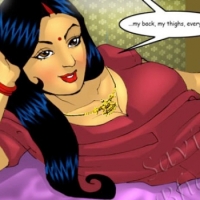 Once again, the country’s judiciary has underlined the fact that there is something fundamentally wrong with the police in India. On 7 November, the Chief Justice of Karnataka High Court, Justice Vikramajit Sen, while hearing a case said, “I never understand why the police always take the side of villains. Whether it is Haryana or Karnataka, it is the same.” Justice Sen, chairing the Division Bench of the court was hearing a criminal case. Expressing concern about the conduct of police with regard to women, Justice Sen said, ” … the police have no sympathy over the plight of the [rape] victim … Until it happens to their families, they cannot understand”, concluded the court.
Once again, the country’s judiciary has underlined the fact that there is something fundamentally wrong with the police in India. On 7 November, the Chief Justice of Karnataka High Court, Justice Vikramajit Sen, while hearing a case said, “I never understand why the police always take the side of villains. Whether it is Haryana or Karnataka, it is the same.” Justice Sen, chairing the Division Bench of the court was hearing a criminal case. Expressing concern about the conduct of police with regard to women, Justice Sen said, ” … the police have no sympathy over the plight of the [rape] victim … Until it happens to their families, they cannot understand”, concluded the court.
The courts in India, including the Supreme Court, on several occasions have lashed out at the police and other law enforcement agencies in the country, each time expressing concern of the fact that these agencies are professionally unfit to undertake their mandate. For instance the Kerala High Court while hearing a case relating to crimes committed by the state’s police officers expressed serious concern over the high number of police officers, ranking from constable to the Inspector General of Police, who have criminal cases against them, and are still in active service.
The report submitted by the Director General of Police in Kerala to the High Court on 8 August 2011, reveals the names of 533 police officers that fall into this category. The state government however has tried to dismiss the seriousness of the issue and no action whatsoever has been taken against these officers so far.
One of the most notorious cases in the list is that of an officer of the rank of the Inspector General of Police, accused of charges including corruption, smuggling, and threatening and intimidating witnesses. The fact that these officers are not only responsible for formulating policies for the department, but are also directly involved in criminal investigation, challenges the capacity of the Indian police to undertake criminal investigation, one of the foundation stones of criminal justice delivery in the country.
In fact the Government of India does not have a real picture of the state of affairs concerning the alarming internal wilt that has occurred in the police. The record available with the National Crime Records Bureau (NCRB) is an example of this. The NCRB report claims that out of the 61786 complaints made against the police in 2011 in the whole of the country, only 916 were charge-sheeted.
Human rights organisations like the Asian Human Rights Commission (AHRC) and other civil society organisations have been calling upon the Government of India to take immediate action to deal with this serious absence of professionalism and morale within the police and other law enforcement agencies in the country. Cases documented from India, including that of corruption, the widespread practice of torture and other forms of custodial violence substantiate this concern. The AHRC has been calling upon the Indian authorities to address with immediate effect the resultant moral wilt within the police as well as other law enforcement agencies, which has led to the breakdown of the day-to-day administration of criminal justice in India.
Just as it is in the case of any other disciplined force suffering from lack of morale and professionalism, the despicable conduct of the police is not limited to cases involving private complaints. The lack of an enforceable disciplinary and accountability framework has resulted in the police treating crimes committed against their own rank and file with the same temperament as it is in the case of private complaints. Criminal investigations in the country resemble in fact a marketplace, where negotiations are made in the open and deals sealed under the table.
The internal investigation report filed by the Director of Police Intelligence, Mr. T. P. Senkumar, to the Director General of Police, Mr. K. S. Balasubramaniyam, concerning the case of assault and death of a Sub Inspector of Police (SI), Mr. Thankaraj, in Kerala speaks about the alarming fact that police officers even compromise with criminals, crimes committed against fellow police officers by local thugs, after demanding and accepting bribes from these criminal elements.
The intelligence report prepared by Senkumar alleges that the Superintendent of Police, Mr. K. B. Balachandran and other police officers have accepted bribes from a local thug, Mr. Sebastian, so that Sebastian’s name is dropped from the list of suspects accused of assaulting the SI, that resulted in his death. That such demeaning and corrupt practices are highly prevalent among the rank and file of the state police department, not only negates every legitimate purpose of criminal investigation, but also encourages all officers to be corrupt within the force.
In this case too, unfortunately the Government of Kerala is reportedly refusing to take action against the errant police officers due to illegal and political considerations. These incidents are not rare in India, but rather the standard conduct of police officers, that the entire force does not enjoy an iota of trust among the population, and unfortunately the country’s judiciary subscribes to this general perception.
The AHRC is of the opinion that the single largest impediment to police reforms in India is the police force itself. Police force in India, which by now has reduced to a mere uniformed criminal gang that brokers with authority, enjoy absolute impunity in return to the role of middlemen they play in power brokering.
Officers agree to do the cleanup jobs for the powerful and the rich with the least amount of persuasion and they are willing to illegally manipulate investigations into corruption and other crimes. While high-ranking police officers often sell their uniforms to the country’s corrupt political and financial elite, the lower-ranking officers extort money from the ordinary people, by engaging in crimes like extortion, fabrication of charges or even undertaking smuggling activities.
The police and all law enforcement agencies to extort bribe from detainees and suspects use threat of torture. Some police officers engage in supporting anti-national and terror syndicates after accepting money and other favours from these gangs. In that, the single largest threat to national security in India is its own police force. Unfortunately this is an issue that the country’s administration is yet to admit to and to remedy.
The continuance of such a state of affairs in police and other law enforcement agencies not only impedes the overall framework of the rule of law in India but also absolutely negates the country’s capacity to fulfil the constitutionally mandated domestic human rights standards. Such faulty institutions that are incapable of discharging everything that is expected to be undertaken within the framework of the rule of law, is exploited further by the government to implement draconian legislations like The National Security Act 1980, The Unlawful Activities (Prevention) Act 1967 and their state variants like The Maharashtra Control of Organised Crime Act, 1999; The Karnataka Control of Organised Crimes Act, 2000; The Uttar Pradesh Control of Goondas Act, 1970; The Assam Preventive Detention Act, 1980; The Armed Forces (Assam and Manipur) Special Powers Act, 1958; and The Madhya Pradesh Rajya Suraksha Adhiniyam, 1990. There are at least 44 such legislations in India, which allows the police to arbitrarily take action against innocent members of the public.
The police to sidestep the rule of law guarantees use all the above legislation, without exception, that other procedural restrictions built in into the Criminal Procedure Code, 1974, to prevent misuse of authority is today meaningless. Today the police could illegally detain, keep in prolonged custody and even murder people with absolute impunity. This negates the fundamental premise of fair trial.
All these legislations however are implemented in the guise of empowering law enforcement agencies to control and prevent crime. Yet the most simple and elementary step, to discipline the police, is yet to be implemented in India.
The basic flaw in this mindset of the government is that the law enforcement agencies are conceived as organs to maintain order at the expense of awarding arbitrary authorities to the state agencies, who subject these laws to wanton misuse since the agencies implementing these legislations themselves act with the same mindset of organised criminal syndicates. Today if anyone refers the law enforcement agencies in India as organised criminals in uniform, such a reference is not untrue.
It is not that exceptions to this general perception do not exist in the rank and file in the law enforcement agencies. It is only that the number of such officers is far too low, that they alone cannot improve the image or performance of the rest of the force. It is a sad truth that both the government and the law enforcement officers know that for the conditions to improve, the change has to come from within, yet both choose to do nothing about it.
# # #
For information and comments: Bijo Francis, AHRC. Telephone: + 852 – 26986 339, Email: india@ahrc.asia
Cartoon provided by Mr. Satish Acharya. The cartoonist’s page could be viewed at http://cartoonistsatish.blogspot.com/
Related articles
- #India-Where women fear to tread #MP #VAW #Indiashining (kractivist.wordpress.com)
- The Kinship Of Impunity #justice #Law (kractivist.wordpress.com)










